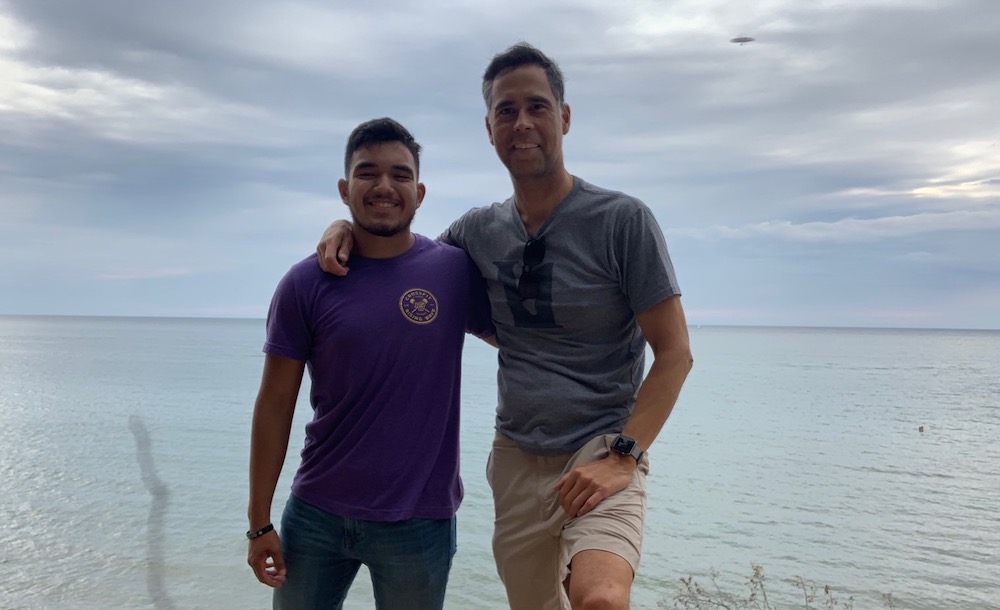Frequently Asked Questions About Mentoring
As part of National Mentoring Month, Walk With Sally hosted Heathere Evans, an Advisory Board member with Walk With Sally, who founded Pivot Coaching which blends communications, psychology, neurobiology and organizational effectiveness to serve organizations and individuals with professional development, mentoring and coaching programs. Heathere came by and provided her expertise to answer some of our mentors’ most frequently asked questions!
Q: I spend a lot of time with my mentee and we have a good relationship so far, but when we’re not together we have little to no contact. He doesn’t really use his phone much. Should I try to communicate more via text or calls or continue to let him set the pace? I want to show him my support without being intrusive.
It is natural as a mentor to want connection and engagement with your mentee. Research shows that there is a tremendous amount of value with just being there for someone and being a presence of compassion and caring. Letting your mentee know that you’re there for them and following their lead with however support looks for them is most important. It becomes a personal growth exercise to be willing to be led by the person that needs to support and meeting them however they need.
Q: Is it ever a good idea to bring a spouse, family member, or friend to outings and introduce them to my mentee? How do I approach that topic with my mentee and their family?
At Walk With Sally, we encourage mentors to make sure that they develop a one-on-one relationship with their mentee, particularly in the first 6 months of their friendship. From there, we encourage an open and honest conversation with your mentee, their family, and your own family to determine how it best makes sense to include each other in your lives and introduce them.
Q: My mentee is very quiet and hasn’t shared much or opened up to me. How do I encourage them to share when they are ready and create a supportive relationship when they are not talking much?
A lot of success is about setting an intention to be there and create a safe space for your mentee. Creating that space will help your mentee learn to share. Sharing some of our own experiences can also help build trust and help your mentee see that they can also share and that you will listen and be supportive. Your level of openness will set the tone!
Q: How do I determine if I should spend money on an outing with my mentee? How should I respond if my mentee requests something that costs money and I am unable to pay for it?
This is an opportunity to determine your own boundaries and comfort level and being willing to share those boundaries with your mentee. You need to make sure that you’re staying within your own comfort levels for this part of the friendship. Also look for activities that are free or low cost to highlight the value of those types of activities and show how much fun they can be.
Q: How should I support my mentee through the loss of a family member? How can I support the family through this time?
Recognize the value of being rather than doing and be supportive of your mentee and their family. Also recognizing that your mentee and/or their family might need space and respecting that when needed. Understanding that it’s a process and being patient throughout any changes is really important.
Q: If my mentee has siblings that they are very close to how can I navigate still having alone time with my mentee when the parents want me to include the sibling?
Allow space for their siblings to be included at first and as time moves on, try to encourage more one-on-one time and develop that relationship. Make sure you are respecting their comfort level and try to strike the balance between developing your friendship and the mentee’s comfort and needs.
Q: Often times when it is a new match the parents aren’t comfortable with the mentor taking their mentee away from the home. What is a good way to navigate this conversation? And how many hangouts should we have at the house before approaching the conversation?
Be open to meeting at the house initially in order to create trust within the family and then communicate with the family to determine when everyone will be comfortable with you spending time with your mentee outside of the home. We also encourage families and mentors to come to Walk With Sally Friendship Activities together so that their family can get comfortable seeing you and your mentee interacting outside of the house.
Q: How do I discuss delicate topics such as sex, drugs and alcohol if mentioned by my mentee?
These conversations are about safety and make sure you’re navigating these conversations with safety at the forefront. We also want to make sure the environment is trusting. Just listening and being comfortable with silence can be very powerful. Walk With Sally is always available for support or to help facilitate conversations around these topics when needed.
Q: How do I know if I am really making a difference? My mentee doesn’t ever really say thank you or tell me if I’m doing a good job.
We have to let go of the attachment to feedback to know that we are doing a good job. It requires letting go of our ideas about what it means to be of value and of service to someone. Many mentees are in trauma or may have different levels of emotional maturity so may not show appreciation in the same way. All we can control is how we show up and have no expectation for them.
Please comment below with any new questions that come up as you navigate mentoring relationships!

